Kimchi has quickly become a staple in my fridge because of its versatility: not just by itself on the side, but also in weeknight fried rice, Korean stews/pancakes, in sandwiches, even on top of tacos. For a while now, I’ve stopped buying kimchi altogether and started making my own because it’s more cost-efficient, and I can control the spice level and amount of funkiness/fermentation I like. Mild-medium spice, with just the perfect amount of fizzy crunch.
This kimchi recipe is adapted from Maangchi‘s O-G recipe. I really like her porridge-method, because it thickens up the kimchi paste nicely (better paste-adhesion to the wet cabbage leaves). I simplified and tailored the recipe to my preference by using the ingredients (and jars) I have on hand, and shortening the porridge step by using the microwave instead of the stovetop. If you prefer more spicy, you can add more Gochugaru or if you prefer a young, crunchy kimchi then you can shorten the fermentation time on the counter.
Mason-Jar Kimchi, adapted from Maangchi
Total Time: 1.5 Hour Active Time: 30 Minutes
Yield: About 2 Cups of Kimchi paste*
Ingredients:
2 Napa cabbages, cored and coarsely chopped
4 scallions, coarsely chopped
1/2 Cup kosher salt
1-inch ginger, peeled
6 garlic cloves
1 small apple or Asian pear, coarsely chopped
1 medium onion, coarsely chopped
1/2 Cup Gochugaru/Korean red pepper powder
2 Tbsp fish sauce
2 Tbsp glutinous rice flour
1/4 Cup water
1. Prep and salt the cabbage. Coarsely chop the cabbage into large pieces and place into very large bowl. Add half of the salt, mix together and allow cabbage to sit for approx. 30 mins.
After 30 mins, drain the excess water, then add remaining salt. Wait another 30 mins. Then, drain and rinse cabbage with cold water and set aside. The cabbage pieces will feel limp and bendable compared to rigid.

Before Salt 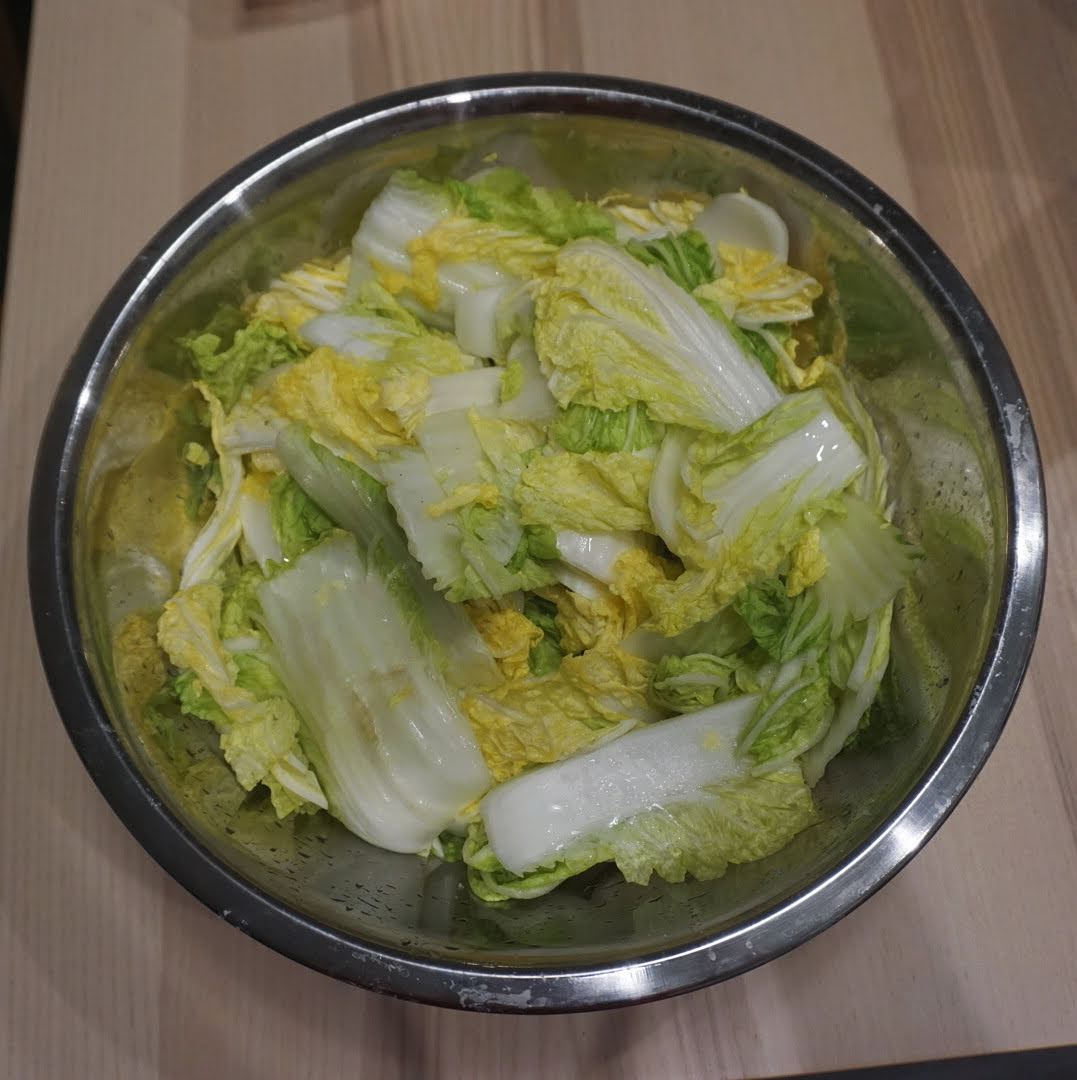
After Salt
2. Make the Kimchi paste. Place fish sauce, onion, apple, ginger, and Gochugaru into blender and blend until smooth. Pour in some water if needed to get the mixture going.
With the remaining water, add glutinous rice flour and mix together in a separate bowl. Microwave on HIGH for 30 seconds, or until water is hot. Mix together until very thick porridge is formed, then add to blender.
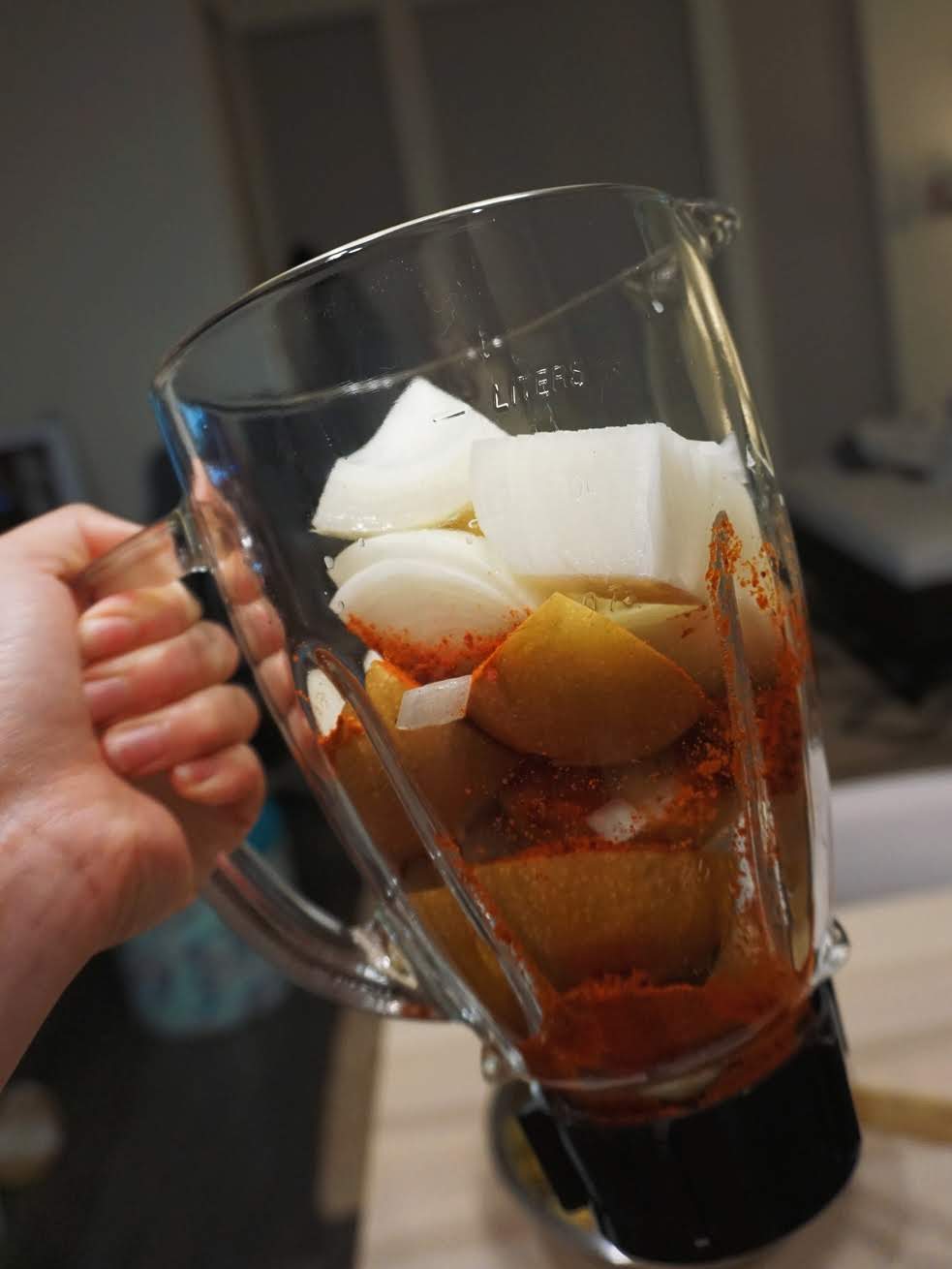
Before Blending 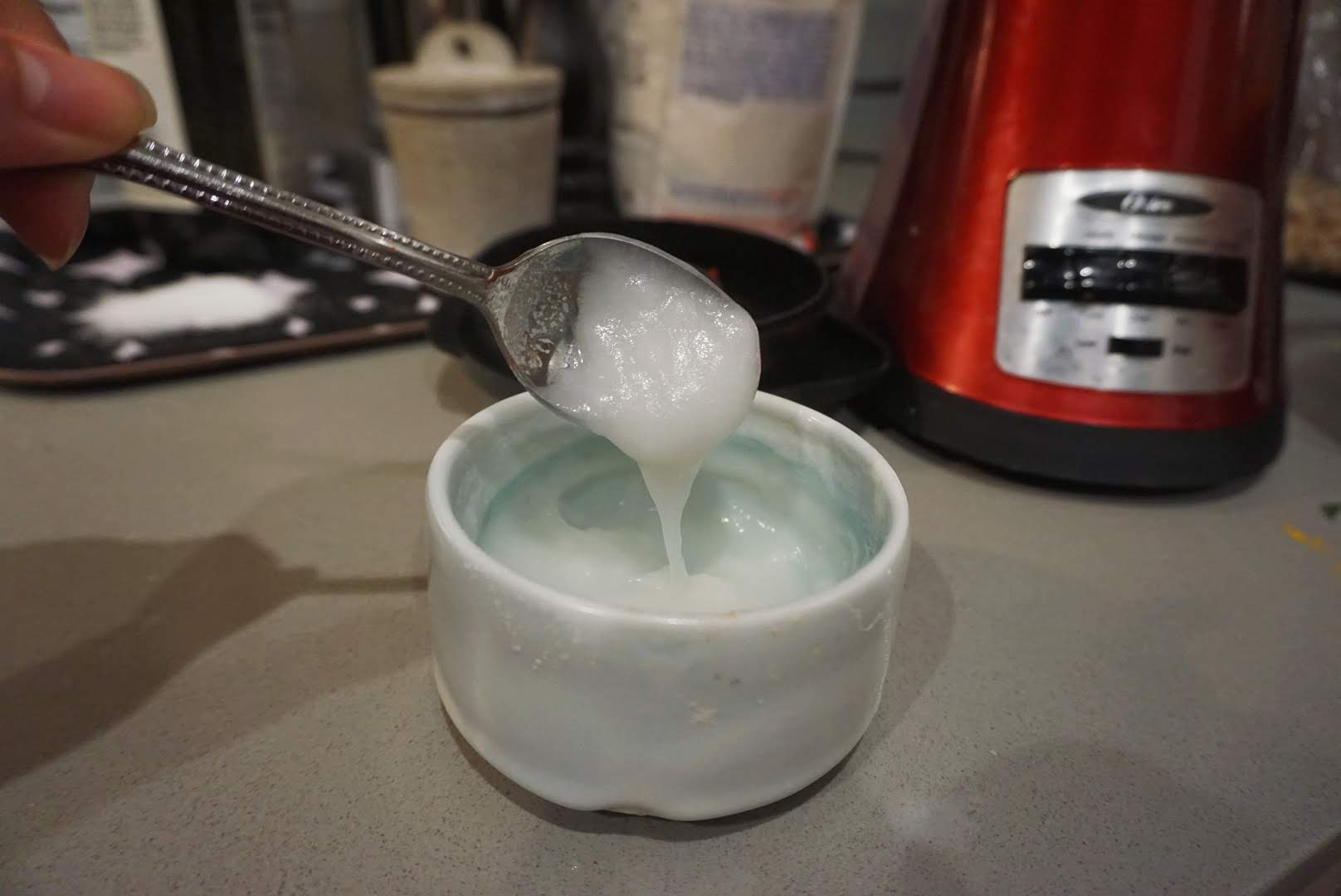
Porridge Consistency 
Mix Porridge into Paste
3. Prep clean Mason jars (or any fermenting containers). Place plastic wrap over the jar opening, then pierce hole in the center; make sure the wrap covers the inside and outside of the opening. This prevents the lip of the jar from getting messy with kimchi paste, and provides easier clean-up when you’re filling the jars.

4. Combine kimchi paste + cabbage + scallions, then jar. Add kimchi paste and chopped scallions to the rinsed cabbage pieces, then mix with a spoon, ensuring all pieces are coated with the paste. Then pack the kimchi into the jars, pushing down with the back of a spoon and leaving about 3 cm of headspace towards the top. Loosely cap the jars. Place all jars onto a lipped plate in case of leakage, then ferment.

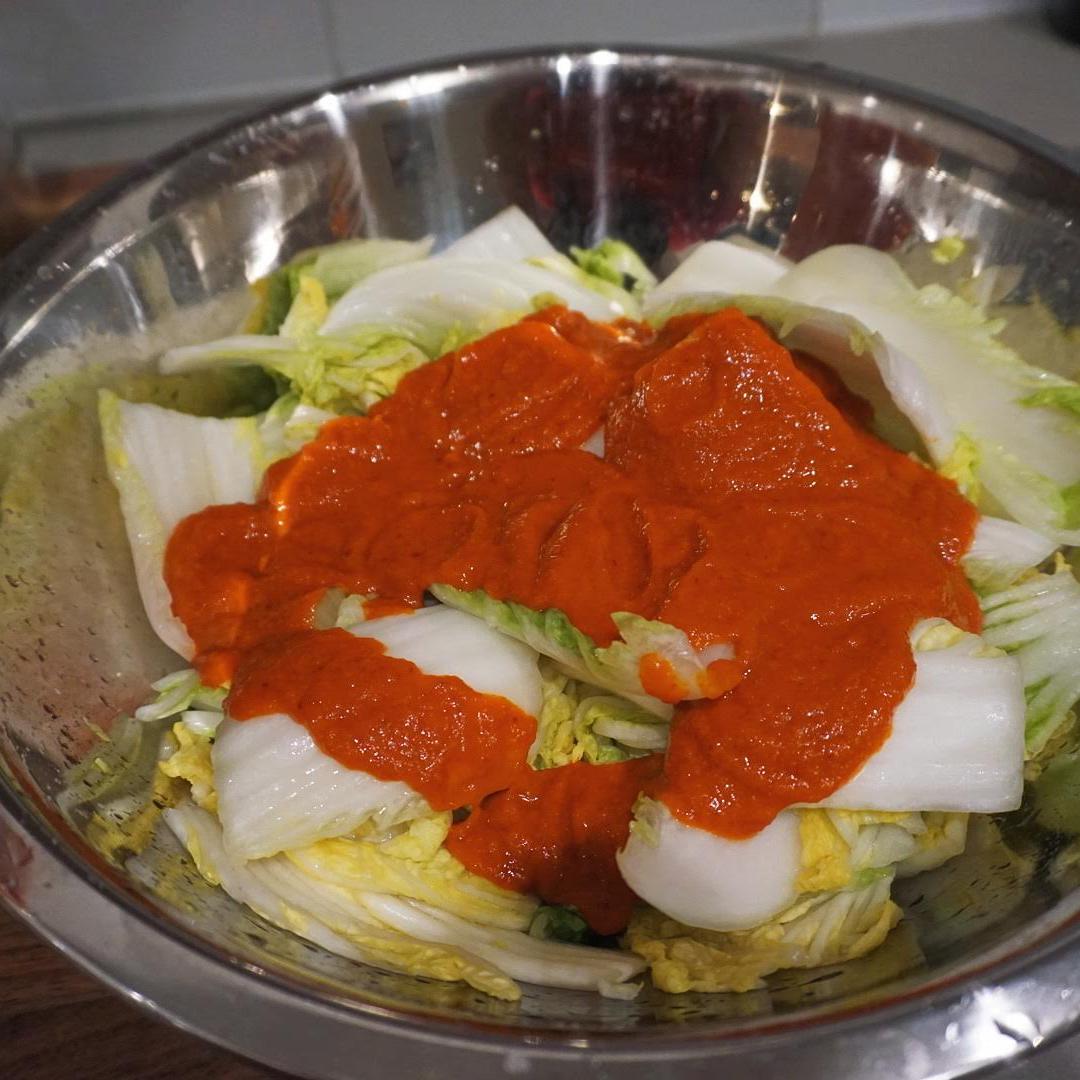
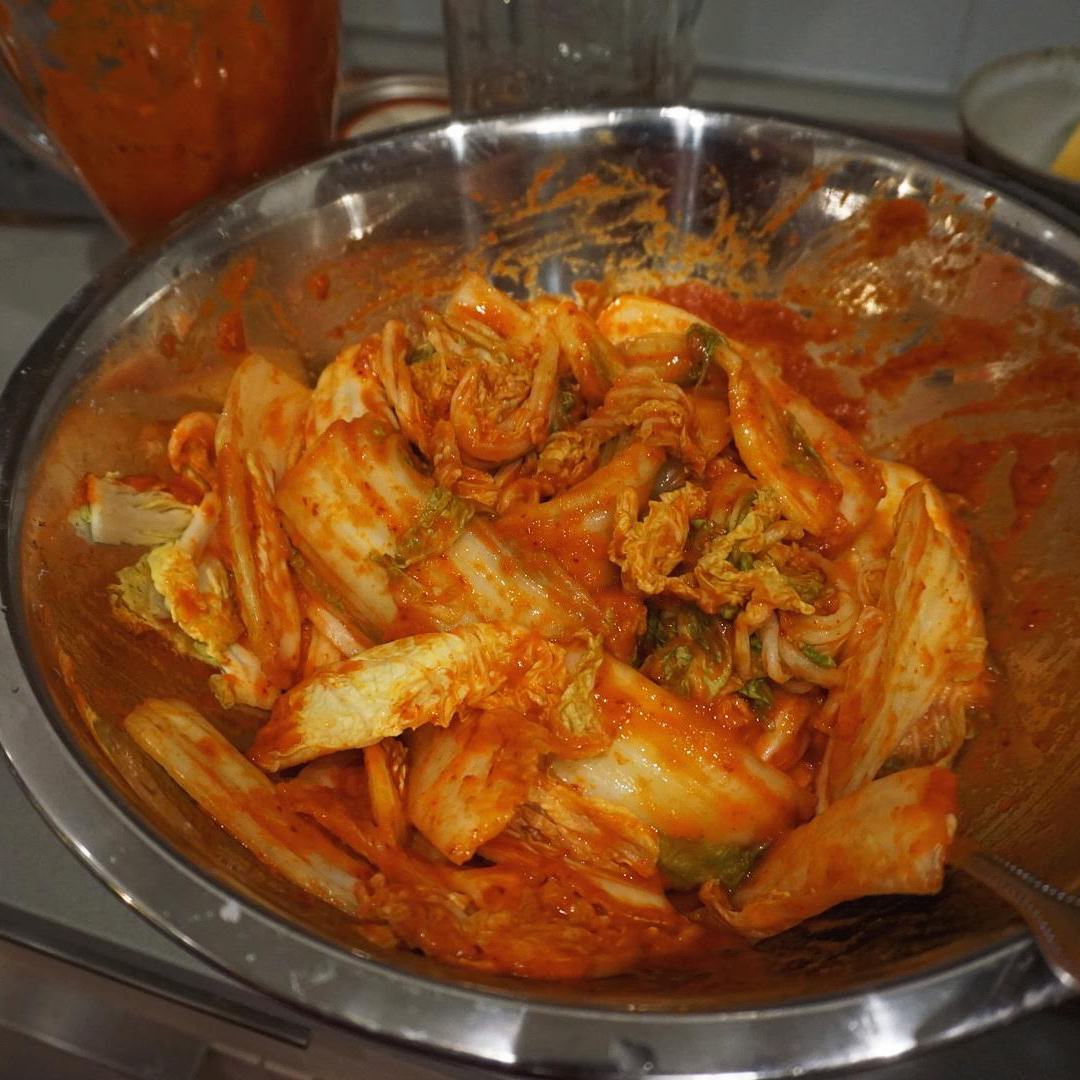
5. Ferment at room temperature for desired time, about 3-5 days. Once a day, examine kimchi for activity and press down kimchi with the back of a spoon. When desired flavor is achieved, fully close jars and store in the fridge. Your kimchi is now ready :)

Q: Will mold grow on my kimchi if I leave it at room temperature? The gochugaru will have enough spice to prevent unwanted mold from contaminating your kimchi. To stay safe, always use clean containers, and check on/press down at your kimchi daily to keep the cabbage submerged in the spicy paste. If you see any unwanted growth or no activity within 2 days, discard and try again.
Q: How will I know my kimchi is actively fermenting? When pressing down on the kimchi, you will see + hear the CO2 bubbles rising to the top! The addition of the pear/apple (aka readily available sugar) helps to kick-start the fermentation, so it’s very likely that your kimchi has become active after 1 day.

Cheers!
-Jenna
*The recipe for the kimchi paste yields about 2 cups which is enough for about 2 large Napa cabbages, or about 5 – 32 oz mason jars. If you’re using just 1 cabbage, you can make the full recipe for the paste, then keep the remaining in the fridge for readily-available kimchi paste.
